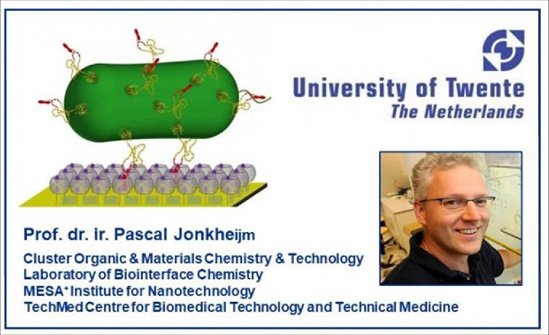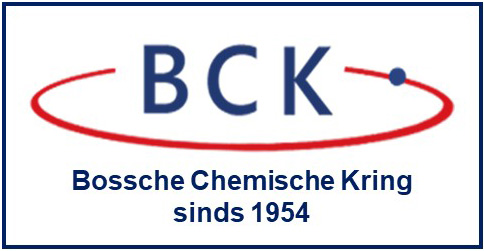
Samenvatting
Properly functioning cell-instructive biointerfaces are critical for healthy integration of biomedical devices in the body and serve as decisive tools for the advancement of our understanding of fundamental cell biological phenomena. Covalent chemis-tries to fabricate cell-instructive biointerfaces typically result in a static presen-tation of pre-defined cell-instructive cues. Chemically defined, but dynamic cell-in-structive biointerfaces introduce spatiotemporal control over cell-instructive cues and present another type of biointerfaces, which promises a more biomimetic way to guide cell behavior. Therefore, strategies that offer control over the lateral sor-ting of ligands, the availability and molecular structure of bioactive ligands and strategies that offer the ability to induce physical, chemical and mechanical changes in-situ are implemented in cell-instructive interfaces. We use the novel biointerfaces to deepen our understanding of molecular and cellular biological proces-ses investigating cell type specific responses and we undertake the translational steps towards targeted in-vivo applications.
Curriculum vitae prof.dr.ir. Pascal Jonkheijm
Jonkheijm (1978) obtained his PhD from the Eindhoven University of Technology (NL, 2005) with Prof. Dr. E. W. Meijer as advisor on macromolecular engineering of pi-conjugated oligomers into nanoscopic objects using supramolecular inter-actions. His thesis was awarded with the 2006 Houwink Award on Macromolecular Organic Chemistry. After that, Jonkheijm moved for a post-doctoral stay as an Alexander von Humboldt fellow to the Chemical Biology department of Prof. Dr. H. Waldmann (Germany, Max Planck Institute for Molecular Physiology). His research interests included protein microarrays and surface microstructuring techniques. In 2008 he became Assistant Professor in the Molecular Nanofabrication group of Prof. Dr. J. Huskens at the University of Twente and MESA+ Institute for Nanotech-nology. In 2013 he was appointed there as Associate Professor and in 2019 he was installed there as Full Professor in Organic Chemistry. In 2017 he has been a visi-ting Professor at the Institute of Biomaterials and Biomedical Engineering, Univer-sity of Toronto, Canada. He received career development grants for early (VENI, 2008) and experienced (VIDI, 2013) researchers of the Dutch Innovation Research Incentive Scheme. He received the Young Investigator Award of the Biomedical Materials Program (2010) and a Starting Grant of the European Research Council (2010). He has recently received (2018) the Gold Medal of the Royal Netherlands Chemical Society. Present research interests include: cell-instructive biointerfaces, self-assembly, cell-surface interactions, dynamics, organic materials, biomimetics. He is (co)author of over 125 refereed research papers and two granted patents. He explores commercial potentialities through three ERC Proof-of-Concept grants (2017, IMPLANTaLife; 2014, BioStealth; 2012, Multichip) and co-founded in 2016 Li-pocoat B.V, a high tech spin-off that commercializes bio-inspired coatings for healthcare applications. http://www.jonkheijm.org
Introducé(e)s zijn van harte welkom.
Graag vooraf bericht als u verwacht te komen.
Stuur daartoe een mail naar tcj.gribnau@planet.nl.
Meer informatie over deze en andere lezingen is te vinden op www.beceka.info.

